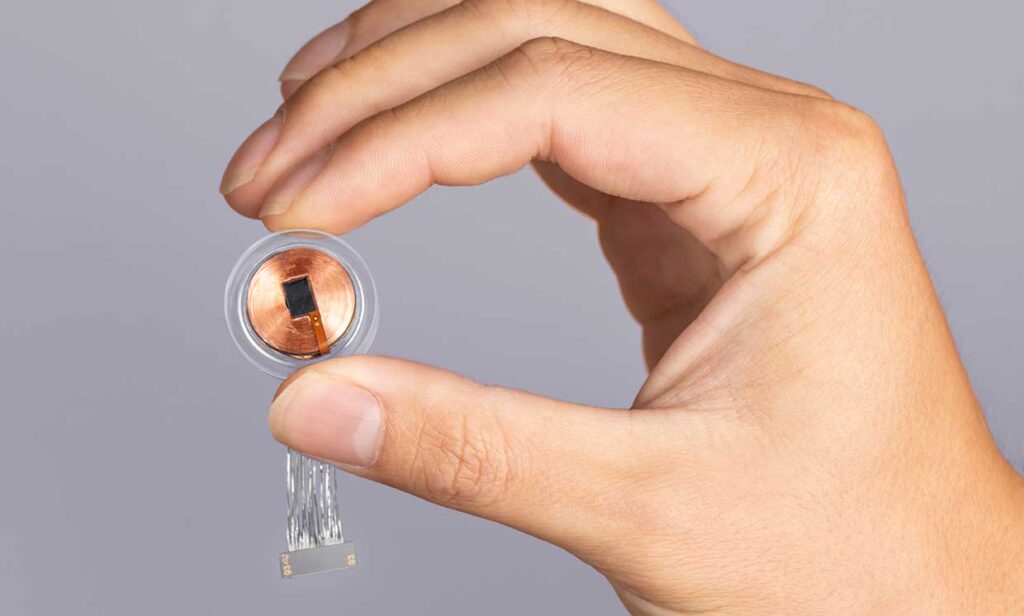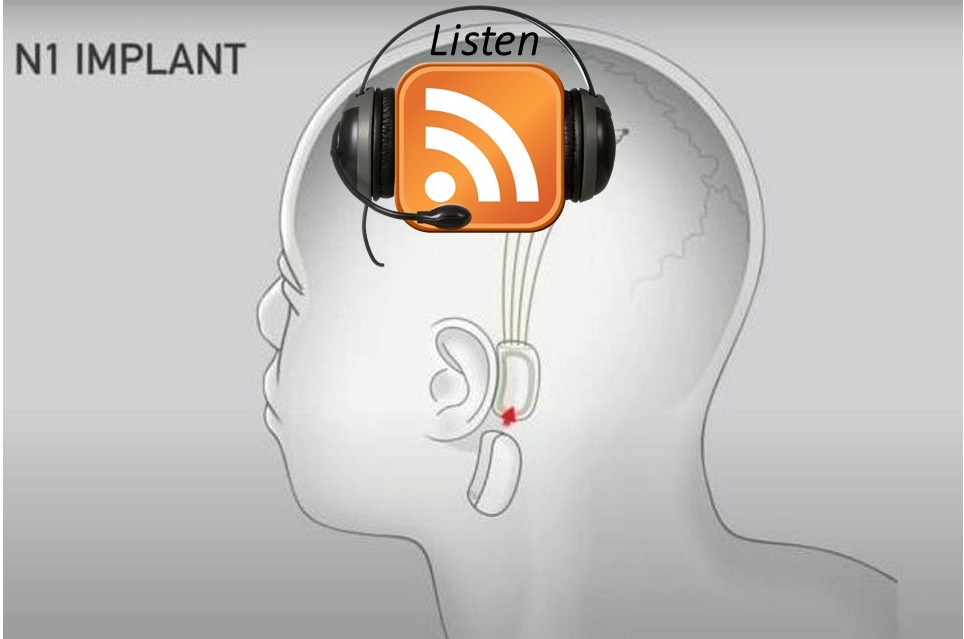As we know it could go either way, And since no one really knows what the end game is, here we as humans kind of need to play both sides of the field. On the one hand, AI could be spectacularly useful for accelerating development in fields like technology and biology.
As long as humans stay one step ahead of the computers, then we’re on the fast track to a golden Age. But what if the AI surpasses humans? Does that put the computer in the driver seat and leave us riding shotgun? Moving forward with AI development is a big risk to take without having some kind of measure in place to mitigate it, and that’s where Elon Musk’s Neuralink comes in.
A brain computer interface device that could facilitate a kind of symbiosis between human and AI. If the idea holds true. Then Elon could be setting us up for a world where it’s not a case of us versus them so much as a case of us and them combining together into something else entirely. But what would that be? Let’s talk about. Of course, there are a lot of opinions out there about whether artificial intelligence is good or bad. It’s a spectrum of ideas. On one end, you’ve got a figure like Mark Zuckerberg. He thinks that AI is fantastic and can only do well.
On the other end, you’ve got someone like Stephen Hawking who feared that AI would simply become the new dominant force of Earth, Hawking once said quote. The development of full artificial intelligence could spell the end of the human race. It would take off on its own and redesign itself. At an ever increasing rate, humans who are limited by slow biological evolution couldn’t compete and would be superseded.
Also, a Fair point humans take our evolutionary advantage for granted somewhere in the middle we have Elon Musk. He’s infamously concerned about the future of artificial intelligence. He fears it, but at the same time he embraces it. Tesla’s work with a Thomas vehicle technology is pushing the boundaries of real world AI. It’s true, bleeding edge development and the company has so far put nearly two million robot cars with computer brains onto the streets of the world. And that’s where Neuralink comes in.
Elon’s strongest company to date is a bridge between those two conflicting sides of his mind, Neuralink de facto mission statement is if you can’t beat them, join them. They mean robots. And again, this is coming from the richest man in the world. Who got that status in large part by selling car shaped robots.
Neuralink concept; they cut out a chunk of your skull, then they so 1000 hair like probes into the outer layer of your brain. And then they attach those probes to a small device. That has basically the same functionality as a smartwatch. The Fitbit goes into the hole left by your missing skull and your skin gets folded back over and stitched up, leaving pretty much zero trace that you have now become a Cyborg. No big deal. There are a whole range of medical applications that this device is going to be Useful.
In short, if every function of your brain is just the transmission of electrical signals, then an electronic device that’s wired into your brain should be able to modify, repair, or enhance any and. All of those functions, but we really want to get into here is how a brain computer interface can truly integrate the computer into the brain or the brain into the computer. Elon has talked about artificial intelligence working as a third layer of functionality in the Human Control Center.The primary layer is your limbic system. This is kind of your base level behavioral instincts. Foods X fight or flight response is caring for babies. All of those deep seated behaviors that are universal among pretty much every living thing on the planet. Primal stuff.

The secondary layer is your cerebral cortex. That’s the wrinkly outer layer of your brain that kind of works like your CPU, your consciousness, thought emotion, reasoning language, and memory all originate in this grey matter. Your cortex is vastly more intelligent than your limbic system, but the two work in harmony. Together, sometimes your limbic system overrides your conscious thought. Most times it’s the other way around. The give and take keeps us alive and functional, and then the third layer, or your tertiary layer is the artificial intelligence. Elon thinks that there is room for optimism that this can all work. Out, given that the cortex is very intelligent, but the limbic system is not, yet they work together well, so perhaps there could be a tertiary layer where a digital superintelligence lies that would be vastly more intelligent than the cortex, but still able to coexist peacefully with the cortex. End the limbic system.
In theory, we’d be getting the best of both worlds through this integration. Artificial intelligence is vastly better at calculating than a human brain could ever be. It can crunch numbers and run scenarios on a higher level, but computers can’t have feelings the way that humans do. And they don’t understand the functions of the physical world and that actually limits their usefulness in a lot of situations. There’s a Ted talk where Janelle Shane gives some really fascinating examples of AI failing miserably to handle what should be very simple tasks, like naming a flavor of ice cream. A study in put 1600 names of ice cream flavors into an algorithm and then asked it to generate new flavor names based on what it learned. But instead of picking anything that sounded like tasty food that AI came up with names like pumpkin trash break, peanut butter slime. And strawberry cream disease. Those are undoubtedly names that could be given to ice cream, but no one would buy them because they don’t sound very appetizing. And how do you explain the concept of appetizing to a computer? Is that even possible? How about instead of trying to explain a human concept to a machine? We’re to give it a Bluetooth link to a neural implant that is wired into a human cortex.

The machine could use your brain as a cross reference to gauge a human response to an artificially generated idea, like if it could send a data set into the brain and then measure the emotional response. It comes back to it and then incorporate that human layer into its calculation. And on this human side, you wouldn’t have to solve a complex mathematical equation based on formulas and rules committed to memory. Your brain could simply outsource the calculations to a computer that beams the answer back into the cortex.
Instantly, would we even need to learn anything if the encyclopedia of everything we’re connected to our brain via Bluetooth? What if doing a Google search became an internal function of your brain instead of a physical act of your body? Trippy illusions push with Neuralink is to facilitate that kind of two way communication between brain and computer with a super high level of bandwidth and a super low barrier to entry, giving a neural link installed should be as easy and affordable as laser eye surgery. Actually it should in time become even more accessible because LASIK surgery is only appealing to people who need glasses to see. But a neural link should appeal to everyone, and higher volume inevitably leads to lower prices, and the more people opt into neural link, the more our new collective digital consciousness grows.
Because everyone with a neural link can now communicate with a kind of digital telepathy, that’s a hard one to get around because obviously no one wants their thoughts to be broadcast out to the world, so it would have to be consensual. I like to think of it more like air drop or drop box. You get to decide what ideas and thoughts. You put into the shared folder and only people with the right password or permissions get access to it, but on a grander scale we would all have our brains logged into one singular network that could be terrifying, like the Borg from Star Trek, but it also could be a spiritual experience.
There’s this idea that is widely adopted by people who take a lot of psychedelic trips that we already have a collective consciousness between human beings and kind of unknowable connection that unites us even if we aren’t actively aware of it. These people are obviously high as kites, but they might be onto something. We’ve learned in recent years that living things in nature share connections on higher levels.

Take trees in a forest, for example. We now know that trees are actually linked together by a fungal network that runs under that ground and allows signals to be transmitted from tree to tree through mycelium. Threats. The biggest trouble with Neuralink is that this is a time sensitive project and Elon is in a race against the singularity to implement his technology. We pass the singularity at the point where digital superintelligence becomes real and vastly overtakes the human mind in every aspect of consciousness. That’s not necessarily a good thing or a bad thing, but we know that once we cross the singularity, things become very uncertain and unstable. That’s the point at which AI starts to pose an existential risk to consciousness and humanity as we know it. So Elon’s goal is obviously to have a suitable brain computer interface. Up and running before we reach the singularity, or at least a very soon after it.
If the human brain integrates with the AI and becomes a part of the superintelligence, then in theory we still get to have a say in how the future unfolds. By democratizing AI, with access distributed among. Most people Elon is hoping to avoid a future where that God like control is limited to a small group or even a singular entity, because as bad as human dictators have been, they all eventually die. But an AI dictator would become an eternal ruler. Now, is this actually something we should all be as worried about as Elon Musk? I don’t know. Elon says that his fear stems from the hubris of mankind. More or less, he says, that smart people are not as smart as they think they are, that the leading researchers in AI might value their own intelligence so highly. That they wouldn’t believe that their digital creations could ever match them until they came. Elon actually thinks that AI is progressing at a rate that is much faster than even the leading minds in the field are giving it credit for, and that makes it a very pressing danger. Elon has been pushing for years to create an oversight that governs artificial intelligence development, some kind of governing body that maintains safety standards and keeps AI in check. But so far nothing like that exists anywhere in the world. People like Mark Zuckerberg are just out there taking this field in any direction they choose, with nothing to stop them from doing harm. We know from recent disclosure that Facebook already knows perfectly well that their existing technology is having a negative effect on society. They know that they are doing harm, but they do it anyways because they make money. Imagine a company like Facebook behind the wheel of something as powerful as artificial superintelligence. That’s why Elon Musk is afraid, and that’s why I’m inclined to believe him. But what do you think, Is AI the evolution of humanity or the end of civilization?

